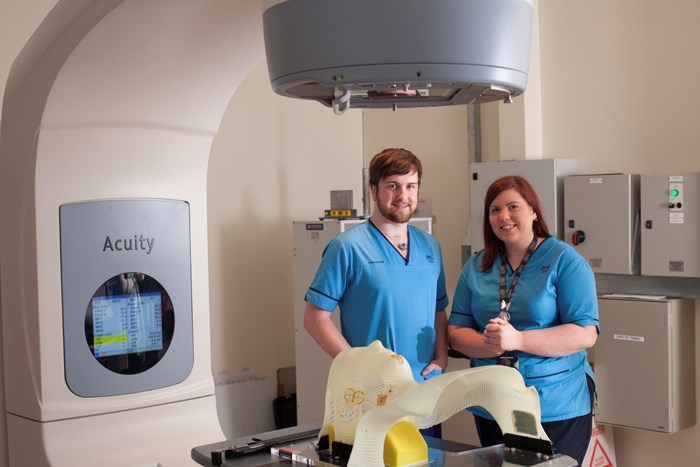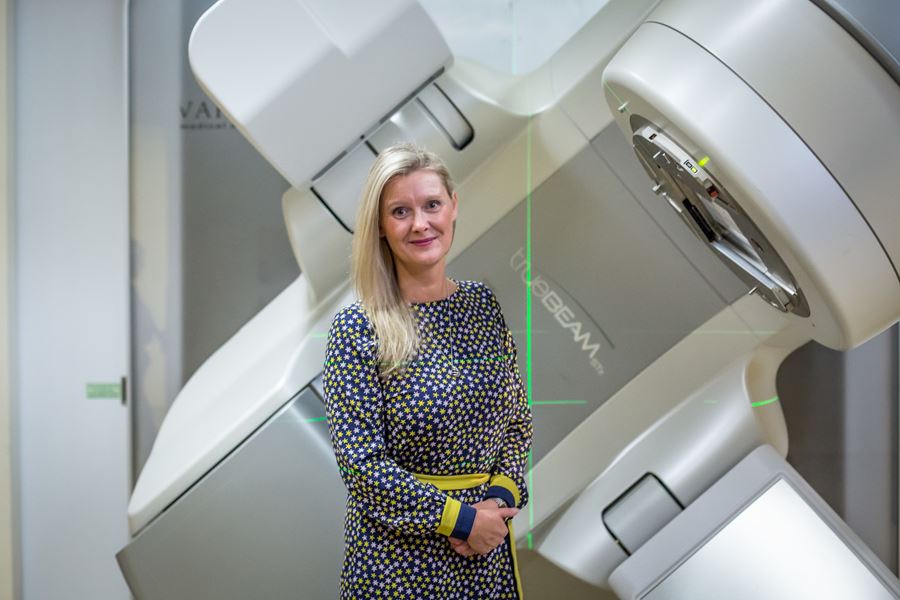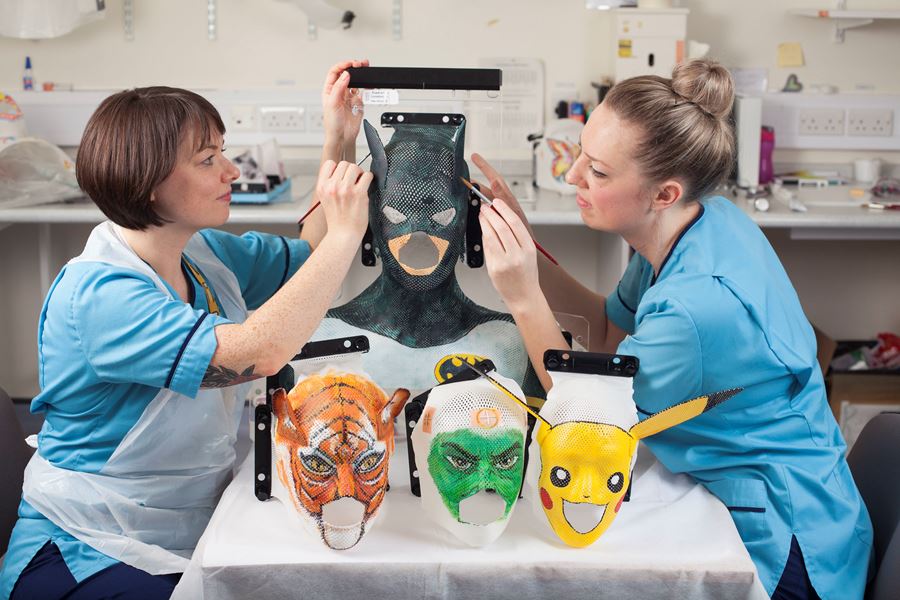What is Radiotherapy?
Radiotherapy is a treatment where radiation is used to destroy cancer cells. There are many ways you can receive radiotherapy, but they all work in a similar way. The main aim is to stop or prevent cancer cells from growing or spreading in the body.
Why is radiotherapy used?
Radiotherapy may be used in the early stages of cancer or after it has started to spread.
The treatment is used for the following:
- To cure the patient's cancer completely
- Helping to make other treatments more effective – for example, it can be combined with chemotherapy (chemoradiation) or used before surgery (neo-adjuvant radiotherapy)
- Relieve symptoms if a cure isn't possible (palliative radiotherapy)
- Reduces the risk of the cancer coming back after surgery (adjuvant radiotherapy)
- Radiotherapy treatment is considered the most effective cancer treatment after surgery, but how well it works can vary on each person.
Radiotherapy at The Beatson
At The Beatson, therapeutic radiographers use hi-tech machines (linear accelerators or Linacs) to treat people who have cancer. The machines generate x-rays for radiation therapy (radiotherapy) which help damage the cancer cells.
The Beatson, along with support from Lanarkshire Beatson, helps to deliver all the radiotherapy in the west of Scotland and is very much a pioneer in new techniques and treatment.
The Beatson Cancer Centre itself boasts one of the best equipped radiotherapy units in Europe, with thirteen Linear Accelerators. In total they deliver 7,000 courses of treatment a year.
Research is also at the forefront of radiotherapy treatment at The Beatson, with many potential life-changing projects including our very own funded radiotherapy research project. Find out more here. Link to radiotherapy blog
Beatson Cancer Charity also fully funds four radiography based staff at The Beatson, including Consultant Radiographer and Lead Research & Development Therapy Radiographer.

Types of Radiotherapy
The most common way radiotherapy can be given to treat patients is the following:
- Radiotherapy given by a machine (external radiotherapy) – where a machine is used to carefully aim beams of radiation at the cancer.
- Radiotherapy implants (brachytherapy) – where small pieces of radioactive metal are (usually temporarily) placed inside your body near the cancer.
- Radiotherapy injections, capsules or drinks (radioisotope therapy) – where radioactive liquid is swallowed or injected into your blood.


Side-effects of Radiotherapy
Radiotherapy treatment does have side-effects and can damage some healthy cells in the area being treated.
Side effects may depend on
- the area of your body being treated
- the type of radiotherapy you have
- other treatments you are also having
Most common side effects include:
- Feeling tired
- Skin reactions and discolouration
- Hair loss depending on the area being treated
- Loss of appetite and problems eating
- Feeling sick/unwell
- A sore mouth
Many of these side effects can be treated or prevented and the majority will stop after treatment takes place.
If you are going through radiotherapy, check out these tips
Find out more about our services at the Beatson Cancer Charity.
Other Useful Links:
Macmillan Cancer Support
NHS UK - Radiotherapy




 Donate
Donate
